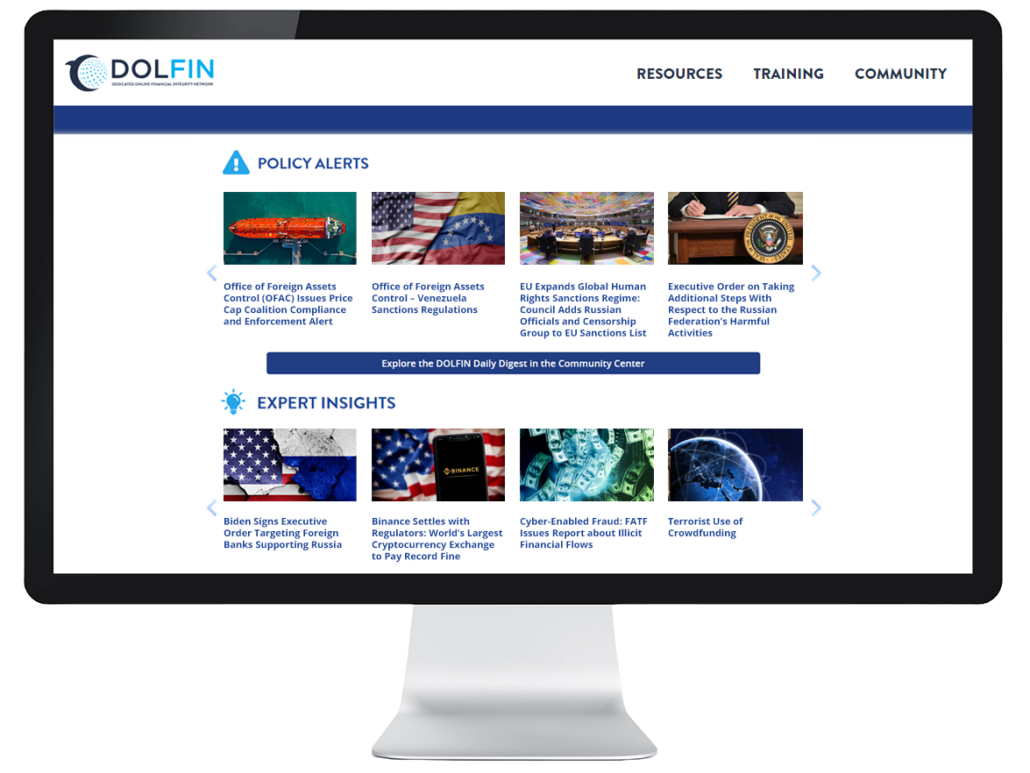The Convergence of Sanctions & AML
Canada’s Special Bulletin Highlights Confluence
📅 July 24, 2024
📅 July 24, 2024
The Financial Transactions and Reports Analysis Centre of Canada (FINTRAC) in June 2024 released a special bulletin focusing on financial activity associated with suspected sanctions evasion. The bulletin provides critical insights into sanctions evasion methodologies and highlights indicators of suspected sanctions evasion to help Canadian financial institutions and other reporting entities meet expanded obligations under Canadian law and mitigate sanctions evasion, money laundering, terrorist financing, and other financial crimes.
The convergence of sanctions and AML has significantly accelerated since Russia invaded Ukraine in February 2022. FINTRAC noted in 2022 that Russia-based individuals and entities sanctioned by Canada—particularly those whose financial assets have been acquired through corruption and other illegal activity—are likely to deploy established money laundering methodologies to evade sanctions. Sanctions compliance and AML teams should collaborate and share data and intelligence to ensure well-rounded efforts to stop illicit actors.
Compliance officers should also closely examine clients and counterparties to detect the use of proxies or close associates, as well as professional enablers to move funds. In addition, FINTRAC warns that sanctioned individuals may use alternative financial channels, such as digital assets to move funds and integrate them into the financial system.
Reporting suspicious transactions to FINTRAC is a critical regulatory obligation that helps protect the Canadian and global financial systems, prevent money laundering, terrorist financing, and sanctions evasion. FINTRAC notes in recent guidance that all information in a suspicious transaction report (STR) that helps identify the transaction as suspicious should be included.
FINTRAC adds in its guidance that every person in Canada and every Canadian located outside the country must also disclose to the Royal Canadian Mounted Police or the Canadian Security Intelligence Service the existence of property that is owned or controlled by a designated person, as well as any proposed transactions related to that property.
Canada’s federal government since 2015 has introduced a series of legislative amendments to the Criminal Code and the Proceeds of Crime (Money Laundering) and Terrorist Financing Act to strengthen the investigative, enforcement, and information-sharing tools of Canada’s anti-money laundering/counter financing of terrorism regime.
Canada’s 2023 Fall Economic Statement proposes new measures to further safeguard the country’s financial system against financial crimes, including legislative measures aimed at combatting sanctions evasion. These measures, according to FINTRAC, authorize the agency to use its expertise to develop intelligence products and disclose its findings to law enforcement partners, when appropriate, to support investigations.

Sign up for the Dedicated Online Financial Integrity Network (DOLFIN). A powerful resource for industry professionals, membership grants unlimited access to our extensive library spanning the core financial integrity topics.










 Working Together to Fight Transnational Financial Crime
Working Together to Fight Transnational Financial CrimeThis site uses cookies. By continuing to browse the site, you are agreeing to our use of cookies.
Accept settingsHide notification onlySettingsWe may request cookies to be set on your device. We use cookies to let us know when you visit our websites, how you interact with us, to enrich your user experience, and to customize your relationship with our website.
Click on the different category headings to find out more. You can also change some of your preferences. Note that blocking some types of cookies may impact your experience on our websites and the services we are able to offer.
These cookies are strictly necessary to provide you with services available through our website and to use some of its features.
Because these cookies are strictly necessary to deliver the website, refusing them will have impact how our site functions. You always can block or delete cookies by changing your browser settings and force blocking all cookies on this website. But this will always prompt you to accept/refuse cookies when revisiting our site.
We fully respect if you want to refuse cookies but to avoid asking you again and again kindly allow us to store a cookie for that. You are free to opt out any time or opt in for other cookies to get a better experience. If you refuse cookies we will remove all set cookies in our domain.
We provide you with a list of stored cookies on your computer in our domain so you can check what we stored. Due to security reasons we are not able to show or modify cookies from other domains. You can check these in your browser security settings.
These cookies collect information that is used either in aggregate form to help us understand how our website is being used or how effective our marketing campaigns are, or to help us customize our website and application for you in order to enhance your experience.
If you do not want that we track your visit to our site you can disable tracking in your browser here:
We also use different external services like Google Webfonts, Google Maps, and external Video providers. Since these providers may collect personal data like your IP address we allow you to block them here. Please be aware that this might heavily reduce the functionality and appearance of our site. Changes will take effect once you reload the page.
Google Webfont Settings:
Google Map Settings:
Google reCaptcha Settings:
Vimeo and Youtube video embeds:
You can read about our cookies and privacy settings in detail on our Privacy Policy Page.
Privacy Policy